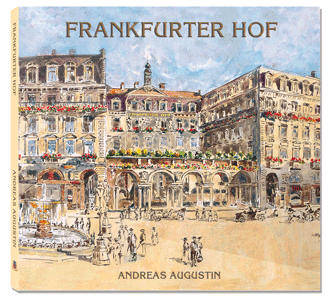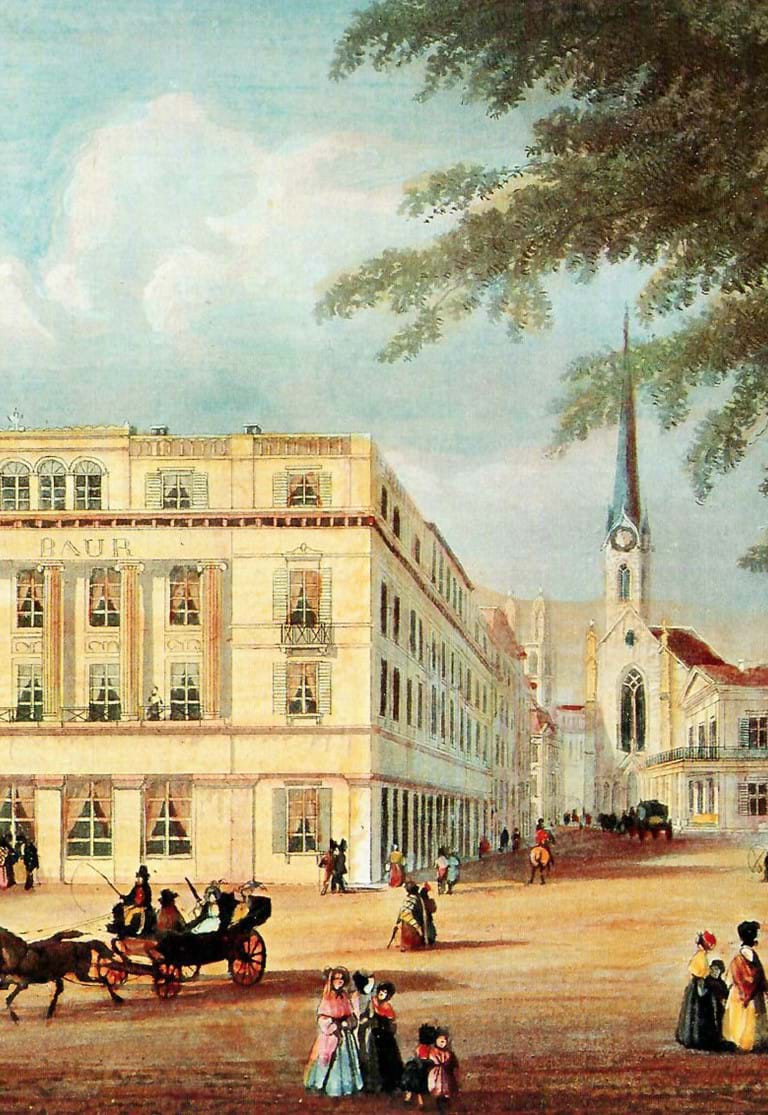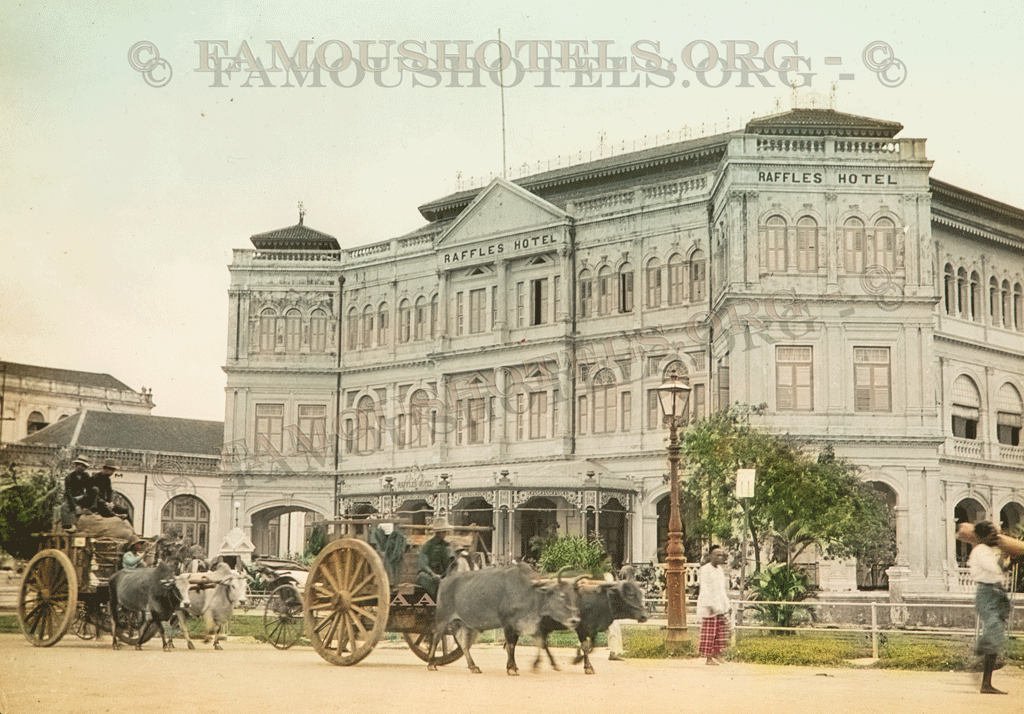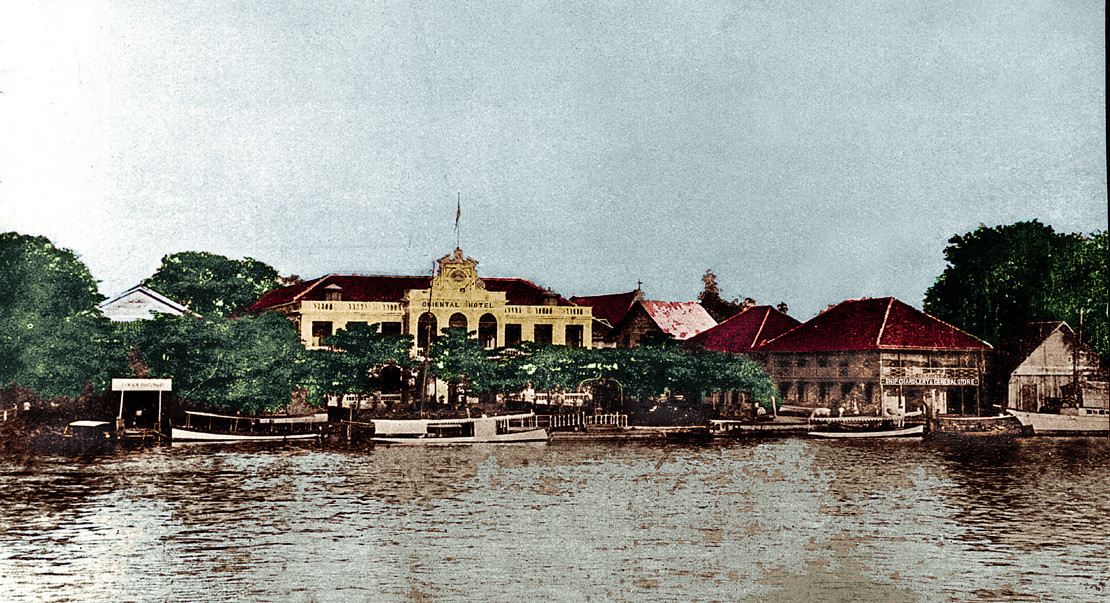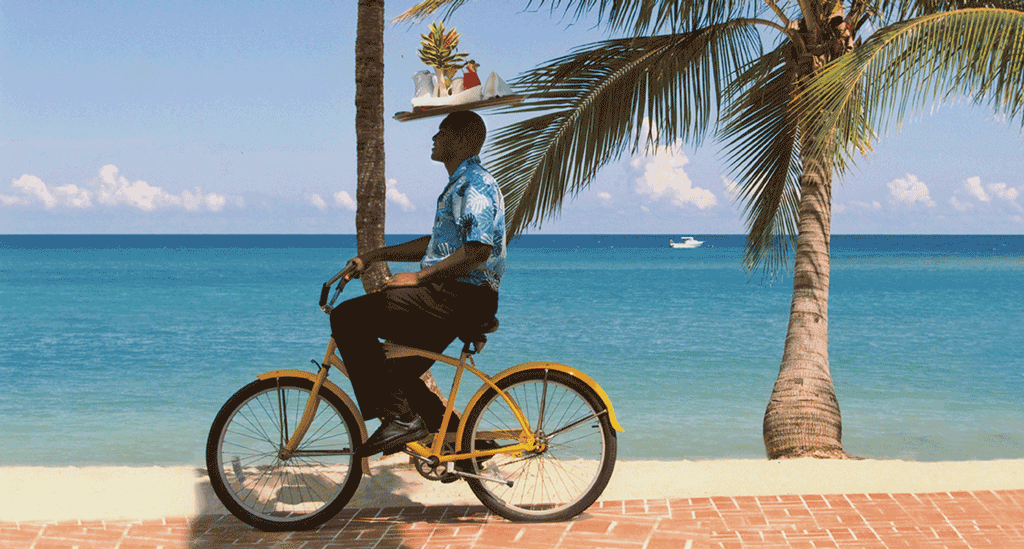Vienna: Hotel Sacher - Third Man’s Birthplace
( words)
Vienna in 1947
In post-war Vienna the hotels were controlled by the different Allied Forces. A contemporary recalls the misery of those days: 'When you booked a room at the Russian controlled Grand Hotel they were dead sure you were a western spy. If you ordered a Vodka at the bar of the American controlled Hotel Bristol, they checked your papers twice. Only at the British Club at the Sacher - providing you had the right papers - could you get a proper Scotch or a strong Slivovitz of equal quality without anyone raising an eyebrow.
1948, February: The British author Graham Greene arrives at the hotel. Here he meets a young British Intelligence officer who tells him the story of the penicillin racket and the underground police working in the sewer system. Greene stays for two weeks and starts working on his film script The Third Man.
'My film story, The Third Man, was never written to be read but only to be seen. The story, like many love affairs, started at a dinner table and continued in Vienna, Venice, ...' writes Graham Greene in his autobiography.
It might have started with the memorable dinner Greene had with producer Alexander Korda. He asked Greene to write a film script for Carol Reed. Korda wanted a film about the four power occupation of Vienna. But it all really started at a lunch with a young British Intelligence Officer at the Hotel Sacher in February 1948.
The Sacher was then a Senior Officers Transit Club, what- or whoever that means!
Somehow Korda had managed to fix Greene a room at the hotel. Greene travelled to Vienna to find a plot. He had allowed himself no more than two weeks in this war worn city. Days went by and Greene slowly sunk further into despair. Let's take another peek at his diary: '... but what story? There were three days left and I had no story, not even the storyteller, . . . On the penultimate day I had the good fortune to lunch with a young British Intelligence officer (the future Duke of St Albans) . . .' This gentleman spun an incredible tale. He told Greene about an underground police who controlled the sewers system beneath the city. He mentioned penicillin rackets, entrances of sewers disguised as advertising kiosks which amazingly were never locked. After lunch, togged up in boots and macintoshes, the two men took a walk below the city. Greene was struck dumb with surprise as the plot for The Third Man unfolded before his very eyes. He made his way hotfoot back to the Sacher and frantically put pen to paper.
The film enjoyed tremendous success around the world not only due to the mastery of Reed's direction but also to the discovery of the Viennese zither player, Anton Karas, who provided the unmistakable musical motif for Harry Lime. After the opening performance in London the delighted audience wolf whistled their glee. Unfortunately whistling after a performance means to an Austrian what hissing means to the British. An embarrassed Anton Karas left the audience and it took some convincing to persuade him to return to celebrate his triumph.
Karas didn't receive any royalties. After the tremendous success of the London premiere, Decca wanted to make a recording with Anton Karas. But he had already gone back to Vienna and refused to go back to London. He had been away for so long and had been so homesick that he really didn't understand the situation and refused to go back to London. So they would only take the music from the film, so he didn't get any royalties, but Carol Reed - eventually they had become very good friends - made sure that he had a good deal."
Karas became a global star.
Frederick Baker: "He made sure that whenever the film was shown or that people wanted it presented that basically Karas came along in the package and he got a lot of money, so in the exhibition, in the book, there are photographs that his family keep of him in Japan, in Greece, him meeting Queen Elizabeth, Gina Lollabrigida came, and lots of other stars including Orson Welles came to the pub he then founded, called 'The Third Man', of course. With a big painting of Orson Welles in the background. He launched what is now a particular part of the Viennese tourist industry and when you go to a Heurigen, that was more or less launched off the back of 'The Third Man' and in fact although the pub doesn't exist, there is now a street, a little street in Sievering named after him."
Links: //thethirdman.net
[url=http://www.sacher.com]http://www.sacher.com[/url]

